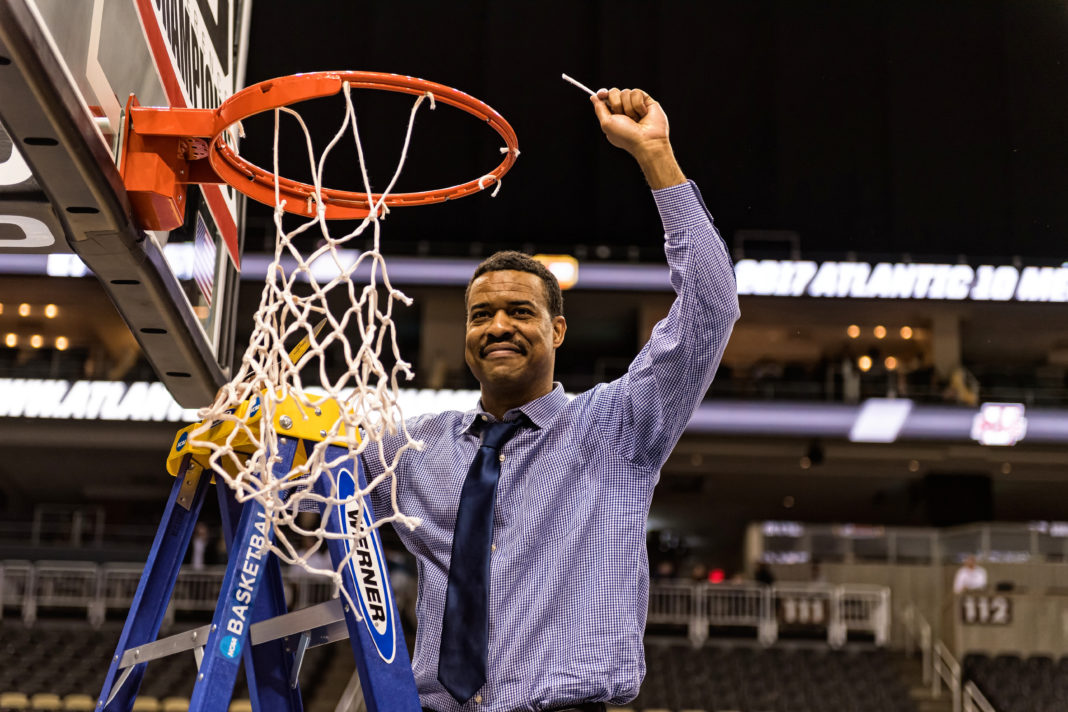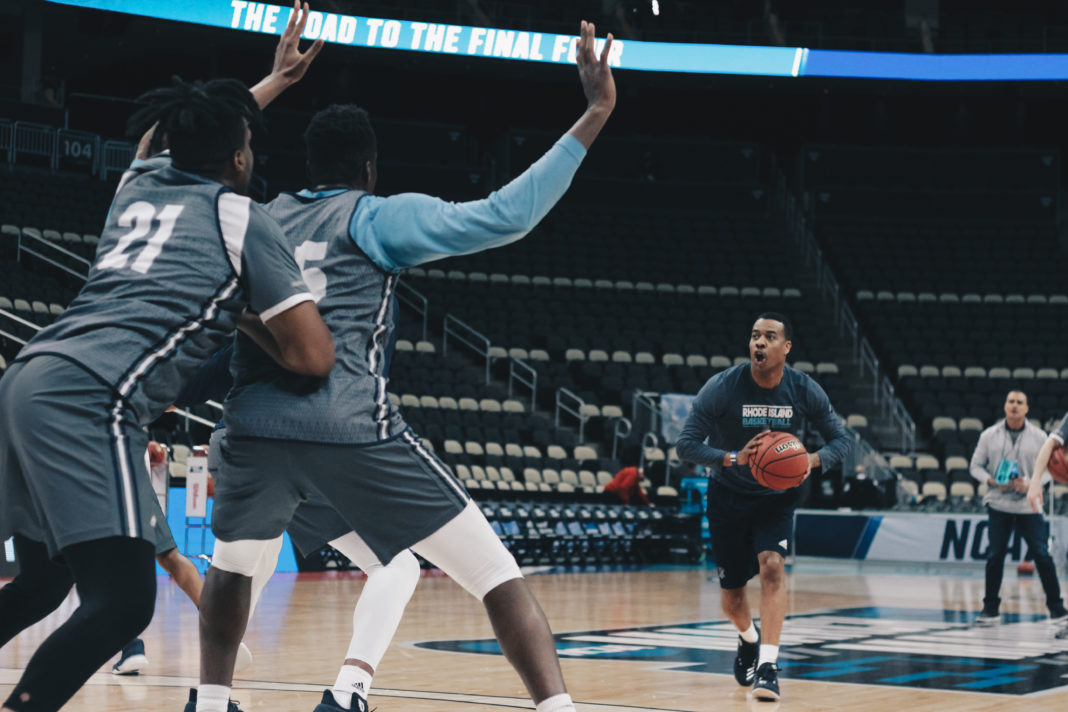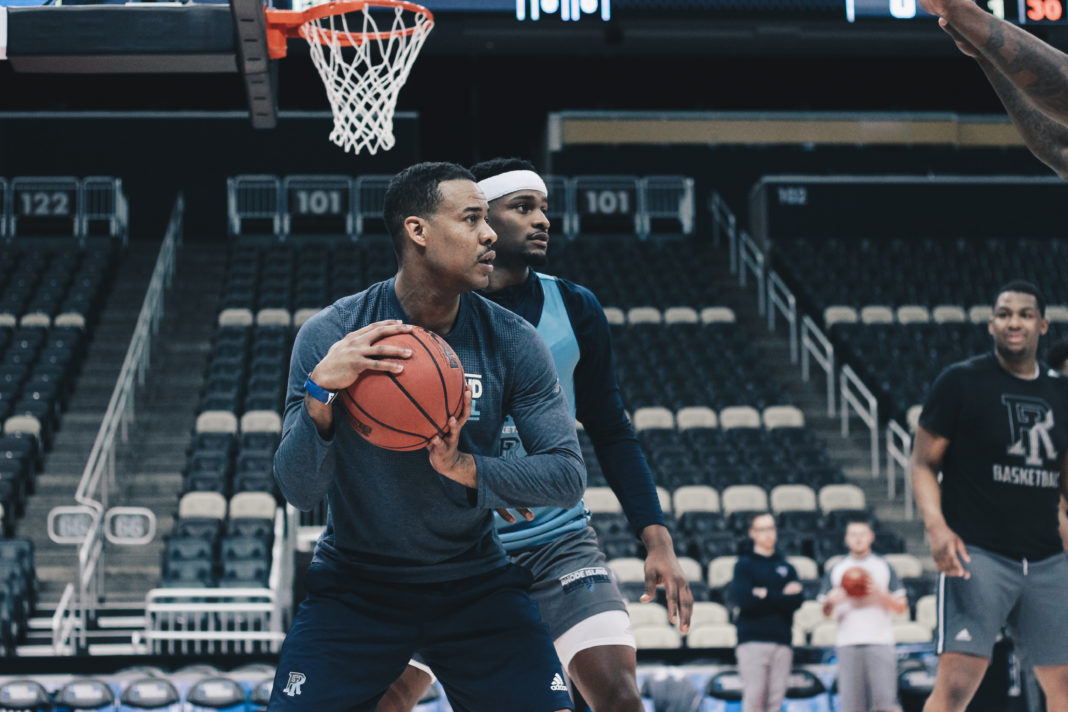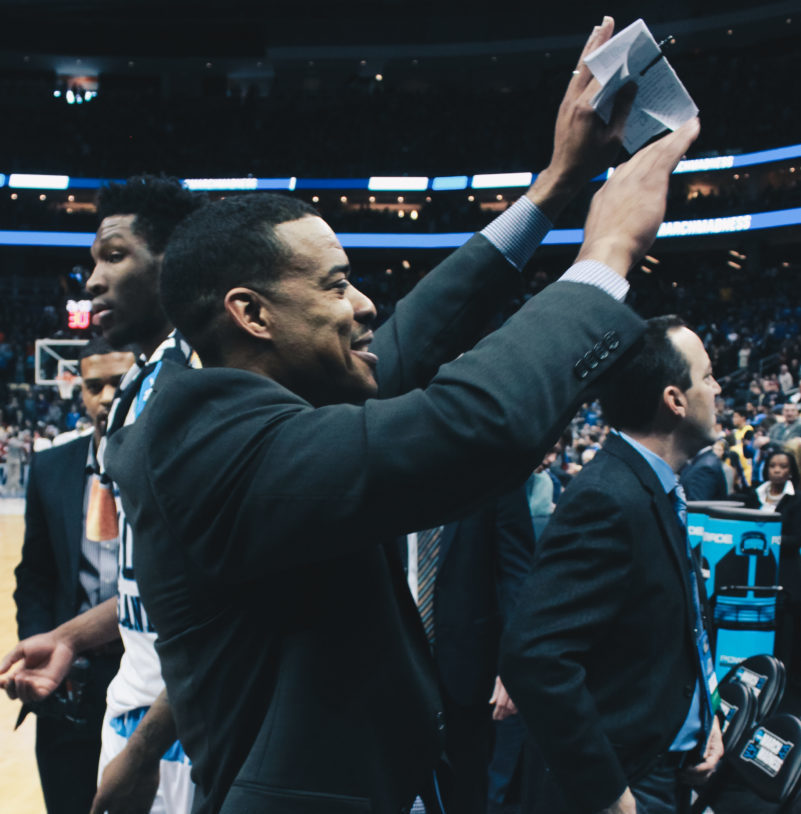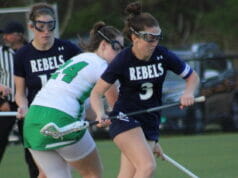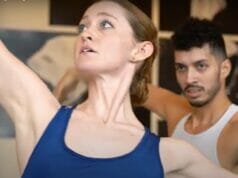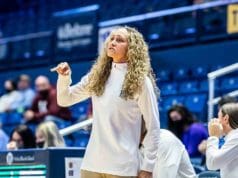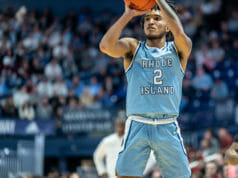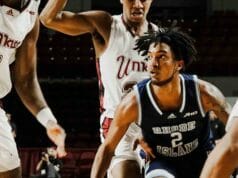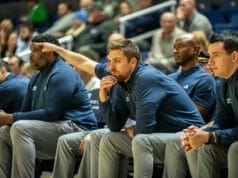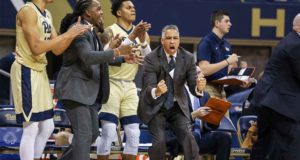On April 6th, Rhode Island formally introduced David Cox as its new men’s basketball head coach. It marked a significant milestone in Cox’s career, from beginning at the grassroots level and ascending through the college ranks as an assistant over the past roughly dozen years.
“This is a dream come true. Navigating the landscape of coaching at the collegiate level has been a long, hard journey,” Cox said via official release. “I was blessed to have made it here four years ago, and to have had the opportunity to work with people like President Dooley and Thorr Bjorn, while building this program to where it is now. I am extremely excited, blessed and humbled to be able to lead this program to new heights.”
With the initial fanfare of the hire subsiding and Cox becoming fully immersed in his responsibilities as program CEO, Atlantic10.com analyst and Yurview contributor Chris DiSano connected with Cox for an in-depth program discussion.
Editor’s Note: This conversation took place on Sunday evening, April 15th.
Chris DiSano: It’s been a little over a week since you formally assumed the reins. I know you’ve had a million things going on, but can you provide a top line overview of what you’ve been up to since that time?
David Cox: As you mentioned, there are a million things going on and we’ve been trying to prioritize, organize and – how about this one [laughs] – compartmentalize. What I mean is with all these things coming at me, it’s important to prioritize… and right now, there are several items from filling the assistant coach positions, getting in the gym with the guys, and getting the recruits situated, along with scheduling, etc. With all of that being the case, prioritizing is critical – with the assistant coach search and the players at the top of the list.
CD: You mentioned the assistant coach search and, while I know you may not be able to share names, can you provide fans with the profile or persona of the type of coaches you’d like to zero in on to round out your staff?
DC: Sure. The process is going well. There has been a stream of interest for these particular vacancies here. It’s been a week and with the assistance and counsel of Thorr as well as the rest of the staff including Ty [Boswell] I’ve been able to narrow that field down to a place where I’m comfortable beginning serious dialogue with Thorr and the candidates to figure out who it will be.
With respect to the profiles, they’re different. I have to figure out – based upon my needs as a coach and this staff as its constituted right now – if I’ll need more assistance with X’s & O’s, player development, or recruiting, etc. In general terms, I’m looking for people I know and I’m comfortable with and that I respect in the business. If I respect this person, it’s going to go a long way.
They’ll have to have coaching experience – and not necessarily a number of years – but a requisite amount of experience on this level. They need to be able to understand and appreciate all of the realities of this level that are necessary to succeed: the practices, player development, evaluating, scouting, video breakdown, and everything off the court as well — keeping up with kids. And obviously, they need to have been productive and acknowledged in their careers in one, if not many, of these areas – be it recruiting, scouting, having a great offensive or defensive mind, or what have you… so putting all that together, I’m comfortable having serious conversations with certain individuals right now and we’re making good progress.
CD: Let’s talk about you a bit… if there’s one word or phrase you want to characterize your style as a head coach, what would that be?
DC: Edge. Everything about my coaching style, everything about how I want these players to attack the game and prepare for the game… My whole life story, has been one where I’ve had to have the edge sometimes just to be in the fight, not even necessarily to win it. They’ll be some games where we’ll just be in the fight, particularly this year with such a young team and the big games we have on the schedule. But at the end of the day it’s that mentality of having an edge or a chip on your shoulder that we need to drive us.
CD: We’re not in November yet, but what subtle variations might you have tactically. For instance, are you open to zone? What other variations from what fans have seen in the past six years might there be?
DC: It’s hard to say definitively, but I can tell you this much… I’m enjoying tinkering with things and I’m open to absolutely anything. Will there be some zone? More than likely. I do like to mix up defenses, keep offenses off balance and be disruptive in different ways. Offensively, my style will probably be a little more free flowing, based on the fact that I’m going to encourage these guys to get the ball up the floor and have great spacing. At this level, you want to gain an advantage, period, and if you can gain an early one and get the defense in rotation earlier it helps you out with a longer time on the back end [of the shot clock] to get a bucket.
CD: In terms of college coaches that you’ve worked with and under who have helped shaped you — are there snapshots of a learning from each that you can share?
DC: Absolutely. Jamie Dixon is the coach who broke me into the business. You talk about head-spinning… I had no idea of all of what that job [Dir. of Ops] entailed. And he allowed me to learn and helped me keep my neck above water. I learned the business of the game off the court and the amount of time required to get your team ready.
From John [Thompson III], it was about learning how to think offensively… that Princeton style which is all about read and react. So it was great to learn the game in its simplest form and how effective you could be doing certain things like reading defenses, cutting, moving the ball with the pass. Also player evaluation, because at Georgetown we were looking for players with a unique skill set. When we recruited big men, we needed to look for bigs who could catch, pass, make proper decisions, had perimeter skills, etc. and that’s just one example. Guards too… for example, Jeff Dowtin fits the type of player I probably would’ve recruited back at that time because he has all the things we looked for in a point guard.
Finally from Dan [Hurley], being around him every day and the day-to-day intensity, focus and preparation.
CD: Shifting focus to the current roster, is there any returnee who you think has a chance to make a significant jump depending on off season work and development?
DC: It’s a tough one to anticipate and I need all of these guys to make a jump. All of them need to get in the gym and get better and add to their games. But if I were to point out one particular person it would be Christion Thompson because he didn’t play last year and we’re going to need to see what he can give us this year. He could end up playing a very important role for us. Athlete, great body, capable shooter, and a very tough kid who can do many of the things Stan Robinson did for us this season along with knocking down some open jumpers.
CD: To append to this off season player development theme, do you have a process in terms of sitting with each guy as they head into the summer?
DC: Part of the culture that’s been established here is one of constant communication. We bring the guys in often and we have individual conversations consistently, so we’ll discuss what I expect and where things are at throughout the summer.
CD: Recruiting-wise, while you can’t speak to specifics…can you speak to general needs?
DC: Well, we have two open scholarships and we’re planning on trying to use one on someone who can come in on next year’s roster and provide us with something… and we’ll probably try to use the other on a transfer. That could be a sit-out or a fifth year, but for a fifth year that would have to be an extraordinary circumstance in terms of fit, but I wouldn’t rule anything out.
CD: Let’s briefly touch upon the schedule… for those who aren’t familiar can you spotlight a few games and is the Nevada game still on as of now?
DC: It will be a strong schedule from West Virginia to the Diamond Head Classic, to playing at Providence and, as far as the Nevada game, we are scheduled to play them. We need a few more games to fill it and I look forward to connecting more on this later in the summer.
CD: Let’s wrap it with this… As you move forward, what are you looking to see in terms of growth and progress?
DC: I’d say that it’s going to be important for me to see progress shown in each one of our players on a consistent basis and as a unit in all facets, from how they’re attacking workouts, their mindset and competitiveness on the floor, in the classroom, etc. Are they actually getting better, putting in extra work, communicating, holding each other accountable consistently on and off the court? Consistency off the court has a direct correlation to consistency on the court.


